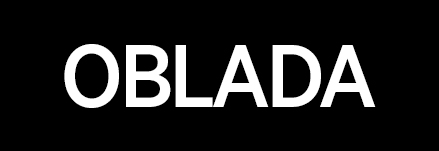In The Weeds: Around the World and Behind the Scenes with Anthony Bourdain
Written by Tom Vitale
Since his untimely passing in 2018 there have been a number of books released on the life of Anthony Bourdain, each providing insight into a complex personality who inspired an audience to see the world through a new set of eyes. ‘In The Weeds’ was written by a long-time director and producer of his various travel series providing a level of intimacy and knowledge that few others would possess, including a behind-the-scenes narrative that was engrossing and, at times, outright shocking (there is one passage in particular about Tony’s behaviour that is indefensible). I am a bit disappointed to learn that what was presented on-screen didn’t always match the reality. But such is Hollywood.
Favourite line: “After years of traveling, I’d curated quite a collection of memorabilia, each item a physical manifestation of a memory, and my house had become a museum of these souvenirs from an alternate universe.”
Down the Rabbit Hole: Curious Adventures and Cautionary Tales of a Former Playboy Bunny
Written by Holly Madison
Years ago I boarded an Airbus 319 heading from Louisville to Chicago. It wasn’t a long flight but the seat next to me was vacant and I was grateful for the additional space on the small aircraft. After the last of the passengers took their seats, I wondered why we weren’t closing the gate and hitting the tarmac. About twenty minutes after our scheduled departure, another passenger joined us and sat next to me.
Making small talk, he introduced himself as Dirk Johnson and shared that his profession was a journalist who had once worked for the New York Times. ‘What an interesting person’, I thought to myself, my own life (at that point) feeling rather boring in comparison. He then told me his partner was meeting him at the airport and asked if I knew her. Her name was Christie. Christie Hefner. Admittedly the name did not ring a bell when he first said it. But then he told me who her dad was.
There are few people alive who haven’t heard of Playboy or felt its influence. It changed the culture (for better or worse depending on your personal lens). But most people haven’t had a glimpse into the inner circle, the days and nights of life at the actual Playboy Mansion, like Holly Madison has. I’d seen this book highly recommended over the years and finally decided to read it. Loving a gossipy celebrity memoir, this one was certainly interesting in that regard but the absolute lack of self-reflection (and personal accountability) coupled with the vitriol towards others was a complete turn-off. Lots of bridges burned within these pages.
Favourite line: “On camera, Kendra was spontaneous, carefree and brimming with those bumbling mishaps ripe for television. And let’s just say, when it came to Kendra, none of those dumb blonde moments ever had to be scripted.”
Get Happy: The Life of Judy Garland
Written by Gerald Clarke
Another book that kept popping up in recommendations. I never really knew much about Judy Garland. I was only knowledgeable that she played a major role in one of the most beloved films of all time. This biography taught me that her life was a tragedy almost from birth, with parents determined—at all costs–to make their children famous. From aiding teenage eating disorders to enabling drug addiction, it seemed Judy never really had a chance at normalcy.
Favourite line: “Disaster is usually woven from several threads, unrelated yet combining to form a pattern of chaos and calamity.”
Seek You: A Journey Through American Loneliness
Written and illustrated by Kristen Radtke
A beautifully written and illustrated graphic novel that examines social isolation and how the constructs of modern life exacerbate it.









